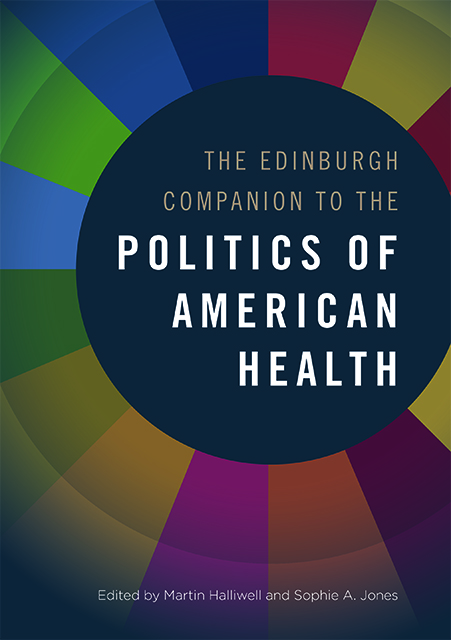Book contents
- Frontmatter
- List of Contents
- Notes on Contributors
- Introduction: The Political Landscapes of American Health, 1945–2020
- I Geography, Community and American Health
- II Critical Health Conditions: Debates and Histories
- III The Politics of Children's Health
- IV The Institutional Matrix of Health Care
- V The White House, Congress and Health Reform
- VI Justice, Ethics and American Health
- VII Public Health and Global Health
- General Bibliography
- Index
29 - Towards a Structural Competency Framework for Addressing US Gun Violence
Published online by Cambridge University Press: 12 August 2023
- Frontmatter
- List of Contents
- Notes on Contributors
- Introduction: The Political Landscapes of American Health, 1945–2020
- I Geography, Community and American Health
- II Critical Health Conditions: Debates and Histories
- III The Politics of Children's Health
- IV The Institutional Matrix of Health Care
- V The White House, Congress and Health Reform
- VI Justice, Ethics and American Health
- VII Public Health and Global Health
- General Bibliography
- Index
Summary
There is an ongoing crisis of gun violence in the United States. According to the Centers for Disease Control and Prevention in spring 2021, firearm violence is a ‘serious public health problem in the United States that impacts the health of Americans’. Within the last two decades, gun violence, including mass shootings, has risen sharply, prompting contentious political discourses and debates centred on how to reduce its incidence. Perhaps no topic reflects the polarizing nature of US health politics more than gun-related injury and death. On the one hand, gun trauma represents an urgent and growing public health emergency. But on the other hand, guns tap into larger US tensions about civil liberty, ideology, mental illness, race and place that are deeply rooted in the historical, social and political architecture of US society, which render public health approaches ever-more complicated.
In this chapter we describe a five-part framework for pandemic-era research into mass shootings and multiple-victim homicides that promotes understanding the psychologies of individual shooters within larger structures and systems. We show how the momentous events set in motion by the Covid-19 pandemic of 2020–22 – and the drivers of inequity and racism exposed by its spread – challenge existing mental health research on gun trauma to better account for broader terrains of race and place, as well as the tensions, politics and assumptions that surround guns in the United States more broadly.
Building on arguments made elsewhere, we contend that doing so will broaden mental health interventions into epidemics of US gun trauma, as well as challenge mental health research to better recognize structural biases inherent in its own lexicon. We frame the agenda through the rubric of structural competency that systematically trains health care professionals to recognize ways that institutions, neighbourhood conditions, market forces, public policies and health care delivery systems shape symptoms and diseases.
Developing a structural framework around research into US gun violence addresses the risks, traumas, meanings and consequences that firearms represent for all communities, especially for communities of colour. Recognizing how gun violence reflects and encapsulates structures helps mental health experts address common-sense gun policies within broader contexts – by fighting against structural racism or racially inflected gun policies, for instance, or against economic policies that undermine access to mental health care more broadly.
- Type
- Chapter
- Information
- The Edinburgh Companion to the Politics of American Health , pp. 493 - 510Publisher: Edinburgh University PressPrint publication year: 2022



